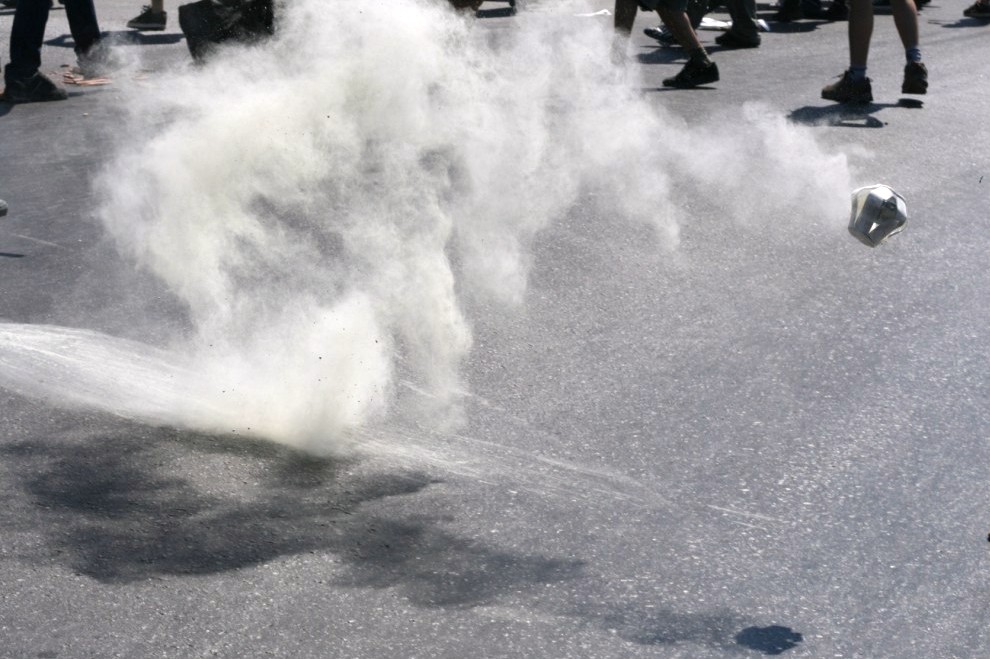FACT CHECK: Can Tear Gas Cause Early Menstruation?

Following the widespread protests that have swept the country after George Floyd's murder, human rights advocates have called out to ban the use of tear gas.
It may be frequently considered nonlethal, but tear gas has been linked to hazardous health impacts like temporary blindness and, as many women have claimed, early periods.
However, according to research fellow in the Human Rights, Rohini Haar, there are only a few research studies available, specifically about tear gas, in general.
University of California San Francisco's obstetrics and gynecology professor Daniel Grossman seconded Haar's stance, saying that the truth is, "These substances have not been well-studied."
But the bottom line is, Grossman continued, tear gas is developed to harm bodies of people. Therefore, the professor said, as a medical provider, he cannot tolerate its use on anyone.
ALSO READ: Vitamin D as a COVID-19 Breakthrough and How It Can Alleviate the Impact on BAME People
Tear Gas in Menstruation
Rewire News reported that several women who participated "at Standing Rock for the Dakota Access pipeline demonstrations" and got exposed to tear gas several times said they did not have their menstrual periods for one year after they left the protests.
One factor, the said news outlet reported one factor causing the delay of periods, could be stress. However, according to medical experts, one year is quite a long time "for this kind of interruption to the menstrual cycle."
A pacifist organization, War Registers League, which advocates against wars in the United States and overseas that indicated late menstruation as a "probable side effect of tear gas."
This indication suggests that the substance may affect one's endocrine system, the one that controls reproductive functions, including menstruation. However, there has been only a little scientific research on these effects.
On the contrary, Sarah Trad, who was also exposed to tear gas when she participated in a protest this month, against police brutality, shared their period came earlier than they expected.
Trad said, her period started early, just a couple of days after. She shared that she also "experienced more cramping than usual."
DON'T MISS THIS: COVID-19 Vaccine: How Soon Can We Expect It?
Don't Use Tear Gas on Individuals of Reproductive Age
National Birth Equity Collaborative President and OB-GYN, Dr. Joia Crear-Perry said, tear gas should not be used on individuals of reproductive age.
She explained too that not so much is known about why exactly tear gas may impact one's reproductive system as "it is so noticeably dangerous that it would not be ethical to study."
The medical expert added, the Food and Drug Administration will not approve research on exposure to tear gas on birthing people as it would "require knowingly subjecting birthing people to tear gas."
Researchers, Crear-Perry, also said researchers would have to "wait and see" if there is an increase in miscarriage rate after this season of "intense demonstrations."
Specifically, she cited data from other nations such as Chile for one, where rising miscarriage and fetal distortion rates follow incidents of mass exposure to tear gas, resulting in the Chilean government's suspension of its use in 2011.
Additionally, Scientific American reported, after the use of tear gas during the Arab Spring demonstrations, there was an increase, as well, in miscarriage rates in the affected areas.
Moreover, according to Crear-Perry, when chemicals, in general, are used in warfare, birthing results are then, more often than not, unexpected. And when the fetus starts to grow, all of its organs begin to develop, and tiny things can "change the normal course of that progress."
IN CASE YOU MISSED THIS: Zero-Deaths, No New Cases of COVID-19 for 50 Days: How Has One Country Maintained Such a Good Record?
© MD News Daily.
